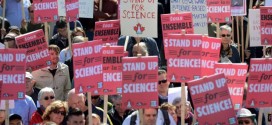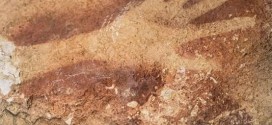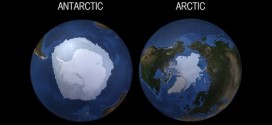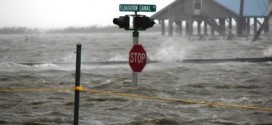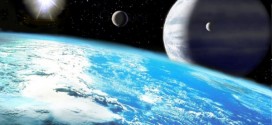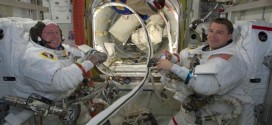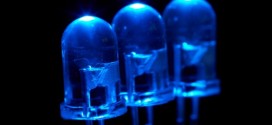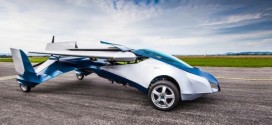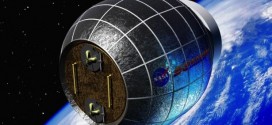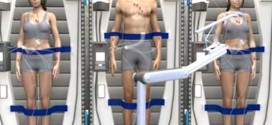Federal science departments received an average grade of C- for how well — or poorly, in most cases — their media policies give researchers the freedom to communicate their research, according to a new analysis released Wednesday.
Read More »Science
Researchers find Indonesian cave art is among the world’s oldest
A painting of a “pig-deer” in a cave in the Indonesian island of Sulawesi could be the oldest known figurative work of art in the world, according to scientific dating methods. The discovery questions established notions of Europe as the birthplace of prehistoric art and suggests that cultural development occurred simultaneously across various parts of the world, reports Reuters.
Read More »NASA scientists report Antarctic Sea Ice growth hits Record high
The sea ice surrounding Antarctica has just reached a new record high this year. The ice covers more of the southern oceans than it has since scientists first began a long-term satellite record to map sea ice extent in the late 1970s.
Read More »Researchers warn sea levels could swamp coasts
The number of high-tide floods each year in some US towns may triple in the next 15 years and in 30 years a ten-fold increase compared to historic levels may be seen, scientists have warned.
Read More »NASA dedicates $50 million to study of life in universe
NASA has awarded five-year grants totaling almost $50 million to seven research teams nationwide to study the origins, evolution, distribution, and future of life in the universe.
Read More »Station crew completes maintenance spacewalk (Video)
Astronauts Reid Wiseman of NASA and Alexander Gerst of ESA have successfully completed what was the first US EVA of the year on Tuesday. The pair outside performed clean-up, replacement, and installation tasks on the exterior of the station. EVA-27 began at 12:30 PM GMT when the duo egress the Quest airlock, ending six hours and 13 minutes later.
Read More »Researchers win Nobel Prize in physics for invention of blue LEDs
Three researchers who succeeded in inventing efficient blue light-emitting diodes (LEDs) where many companies had failed have won the Nobel Prize in Physics. The Royal Swedish Academy of Sciences on Tuesday announced the award to Isamu Akasaki of Meijo University and Nagoya University, Hiroshi Amano, also of Nagoya University, and Shuji Nakamura of the University of California, Santa Barbara (UCSB).
Read More »Flying Car will Remain a Toy of Specialists (Video)
The “Flying Roadster”—AeroMobil 3.0—will be unveiled in Vienna during the Pioneers Festival on October 29. The new unique prototype is going to be physically displayed for the first time to a public audience, and combines the qualities of supercars and light sports aircraft.
Read More »Bigelow : Inflatable private room to dock to ISS, commercialise space
The International Space Station will continue its home improvement project next year, this time by adding a large, inflatable workroom from Bigelow Aerospace.
Read More »Space: NASA eyes crew deep sleep option for Mars mission
NASA is backing a proposal to place astronauts in a state of artificial hibernation during manned missions to Mars. Such a deep sleep, or therapeutic torpor, would reduce space travelers’ metabolic functions, making such missions easier and less expensive to conduct.
Read More »Our Planet Is Warming Faster Than We Realized, New Study
It turns out that ocean warming in the Southern Hemisphere may have been underestimated. After using satellite observations and a suite of climate models, researchers have discovered that ocean temperatures may be rising far higher than expected.
Read More » Canada Journal – News of the World Articles and videos to bring you the biggest Canadian news stories from across the country every day
Canada Journal – News of the World Articles and videos to bring you the biggest Canadian news stories from across the country every day
